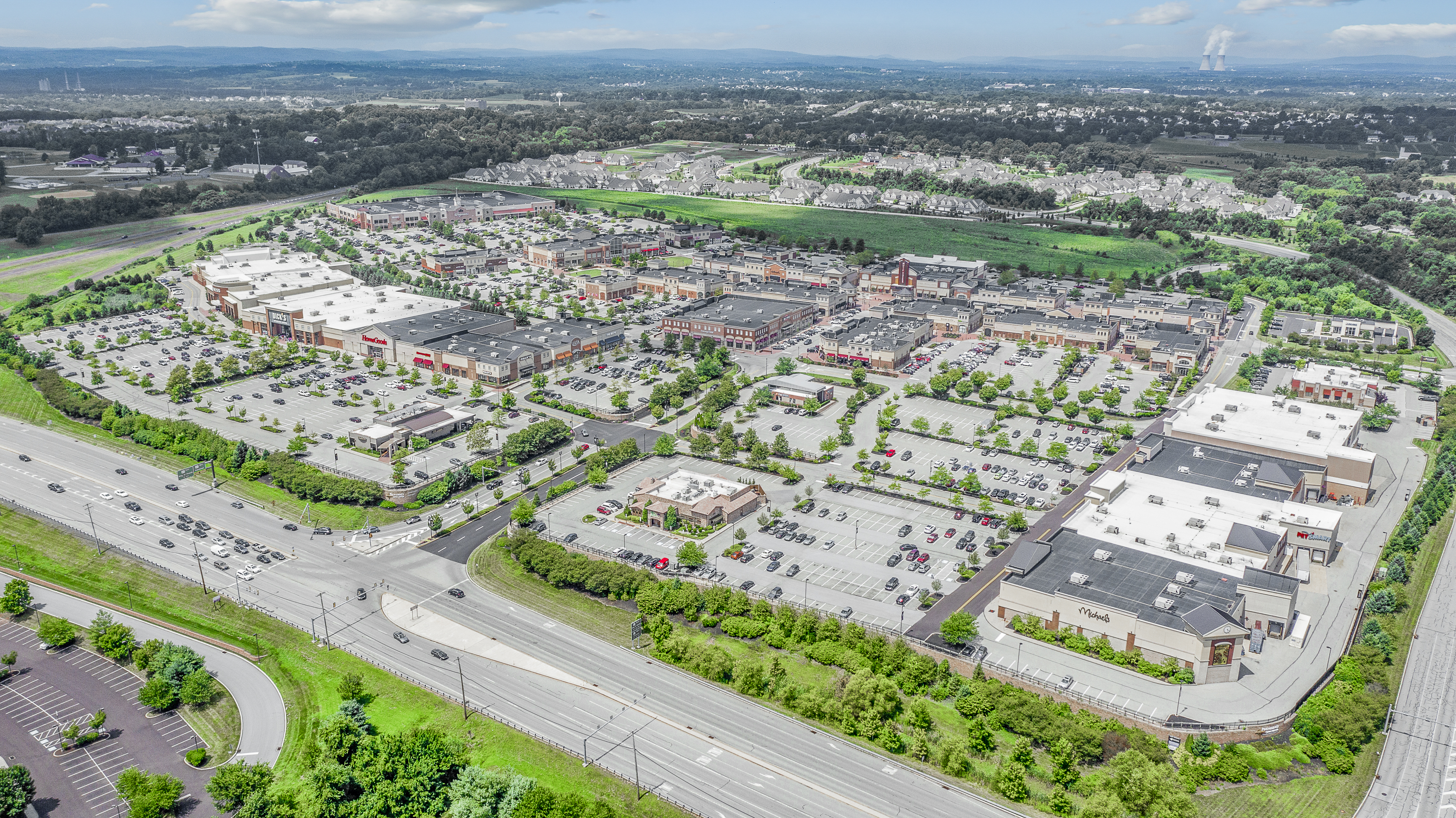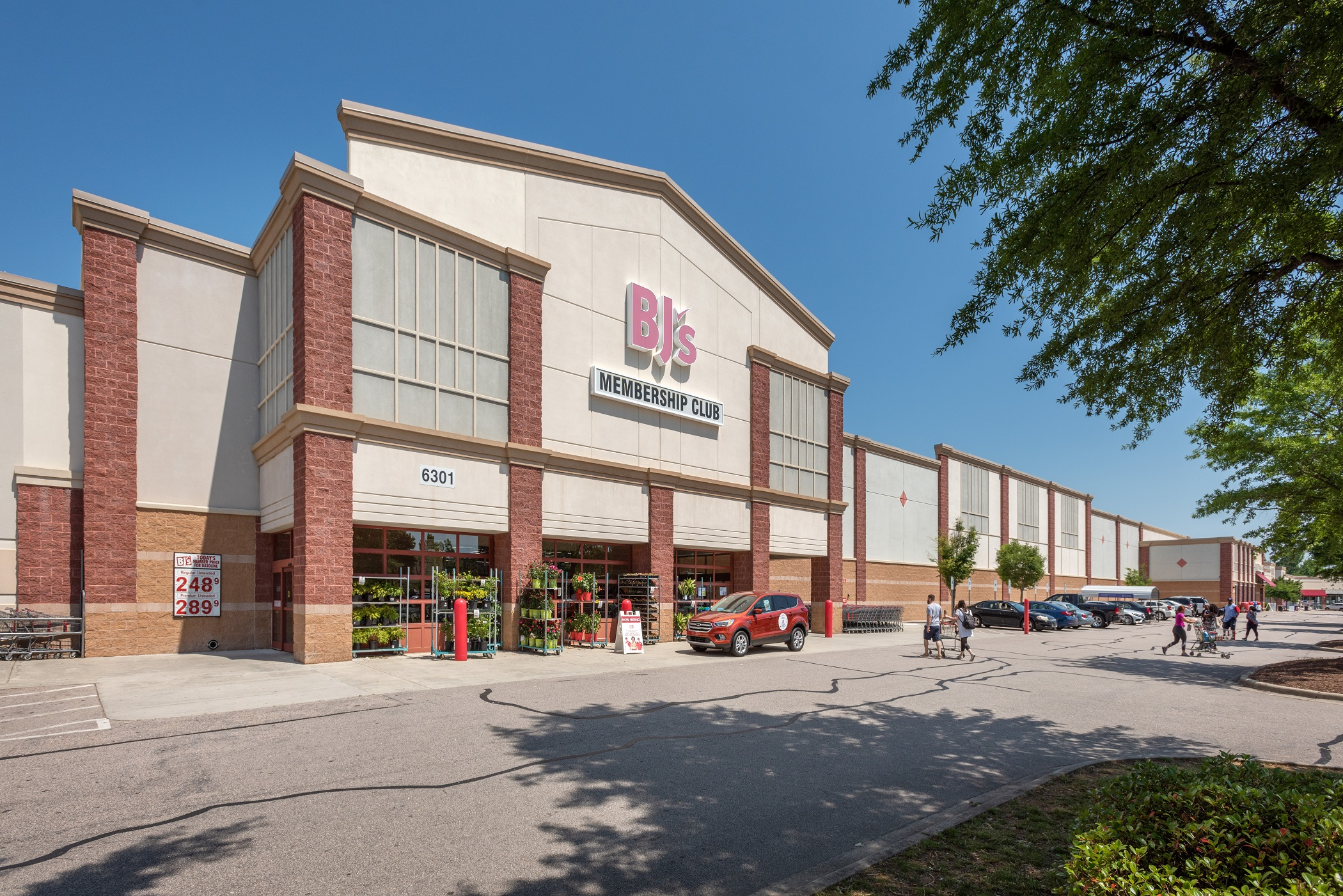Since their time growing up together in Maryland, David Fink and Marc Solomon were destined to be business associates. In fact, they launched their first business venture together, cutting grass, in junior high. “We ended up cutting so many lawns that we were awarded the contract to cut the lawn for our neighborhood pool, which was a really big deal and we got a whopping $50 a month,” said Fink.

David Fink, left, and Marc Solomon have been friends since kindergarten. Here they are heading to summer camp in 1970.
They graduated from the University of Maryland at College Park in 1978, both majoring in accounting and finance. Their paths did diverge eventually: Fink went into the hotel business, and Solomon started a commercial real estate venture, purchasing his first shopping center in 1983, retenanting it and selling it in 1987. He used the proceeds to develop what he said was metropolitan Washington, D.C.’s first power center, a 90,000-square-foot project called Crossroads Shopping Center in Bailey’s Crossroads, Virginia, which featured the first Bed Bath & Beyond in the D.C. area.
In 1987, the pair rejoined forces with Finmarc Management to own and manage shopping centers, industrial and flex-office. “We formed our company using Marc’s real estate expertise and my management expertise,” said Fink. Today, the firm owns and manages 8 million square feet in the Mid-Atlantic with a market value of over $1.4 billion. “We first met in kindergarten and have come a long way,” said Fink. “As lifelong friends and business partners, we still talk to each other almost every day, so it’s pretty good.” Neil Markus, who joined the firm in 2006, and became the third partner in 2017.
In the past six months, Finmarc has entered both the Philadelphia and Raleigh, North Carolina, markets. It paid $162 million for the 760,000-square-foot Providence Town Center outside King of Prussia and $58 million for Raleigh’s 383,000-square-foot Plantation Point Shopping Center.

Finmarc recently entered the Philadelphia market with the $162 million purchase of Providence Town Center.
Why the Move into Other Markets?
“Retail has and is the core component of our success, and with purchasing opportunities shrinking and our base market of the greater Washington, D.C., area, we sort of organically had to start looking at opportunities in strong markets outside of the greater metropolitan area,” said Fink. “These were sort of the offshoots of looking outside our market and finding properties that meet our requirements for investments.”
Solomon added: “We started out primarily all retail, and from retail, we diversified our portfolio by expanding into some office and industrial-flex. And then we have recently gotten back into retail with these purchases. … We are not believers that brick-and-mortar retail is finished. … As we have come out of the isolation period due to COVID, people can’t wait to get back into the stores and interact with other people while shopping, going to theaters and restaurants.”
The company doesn’t use a generic playbook for its acquisitions but rather considers each purchase independently. “When we do purchase something, it is not just about numbers,” said Fink. “It is not about existing income and cash returns, boom, done!” said Fink. “When we look at a property, it has to have other ways to have its value and its cash flow increase. That could be a repositioning of the tenant mix to bring in better credit and hopefully that will improve the cash flow and that will lead to a compressed cap rate from when we purchased it, which will then lead to greater value. Also, we look to see if the property can be expanded, or are there individual pads with credit tenants that we can sell off at lower cap rates or can we change a portion or all of the property to a higher, better use?”
Finmarc avoids loading up on debt. “The three of us, for the most part, make all the decisions. We don’t have a certain hold period and we don’t have an internal rate of return that we need to hit, so if we have an idea for the property and it hasn’t come to fruition in the three- to five-year time period that most institutions need, we wait another three to five years or four years or whatever it takes for that to come to fruition. We have owned certain properties in our portfolio for 20 years.”

Finmarc entered the Raleigh market this year with the $58 million purchase of Plantation Point Shopping Center.
In the past 18 months, Finmarc has conducted almost $600 million of acquisitions and dispositions. “This is all during a period of time when people thought the world was coming to an end during COVID,” said Solomon. “And because we are self-funded and look at things differently than maybe some others, we are able to take advantage and pursue opportunities that others may not have thought were worthwhile to consider.”
What Are the Opportunities These Days?
Finmarc isn’t interested in streetfront or urban retail or malls. Pretty much everything else in the marketplaces arena is fair game. “When we see a property for sale, it has to have some component that gets us excited about acquiring it,” said Fink. He added that their 30 years of experience and connections help them fill vacancies — find the right tenants for the spaces — faster than others. “We also look to see if we can we add mixed uses to the property to increase its value” — such as apartments, townhomes and data centers — “and can we get a portion of the property rezoned for an adaptive reuse? These are the kind of things a property has to have for us to take a look at it.”
One example: In 2001, Finmarc bought a 14-acre, Rockville, Maryland, site that included a government data center. A Life Time fitness center opened there in 2008. To increase the value, said Solomon, the pair re-entitled the property to add townhomes, condos, a seniors housing facility and a parking garage to support the fitness center. Finmarc also had an ownership interest in the property across the street, a 50,000-square-foot center anchored by a Walgreens and tenanted with neighborhood restaurants and convenience retail. “We looked at the two pieces sort of as one, so by adding all this residential, we have not only helped Life Time, we are helping our retail across the street, just bringing in a tremendous amount of high-income residential,” said Solomon.
The Future
So where does the firm go from here? Fink and Solomon each have children in the real estate business. “One is in retail, two in apartments, one is in a commercial office, and they all live outside the D.C. area,” said Solomon. “Hopefully one day, they will move back to be a part of the successful company that David and I have grown over the last 35 years.”
They see significant macroeconomic headwinds. “We do believe we are going to hit a recession in some form or fashion, but we think there are always going to be opportunities for smart, well-funded organizations that have the ability to move quickly and are not just fee developers and counting on a joint-venture partner or an equity partner to complete a transaction,” said Fink. “We are flexible enough that we can continue on our buying and selling spree under the same philosophy we successfully used in the past or we can become a partner with some people who need equity, which we have done before, or we can take over distressed projects from a bank or lender. But at the end of day, there are always opportunities. We could end up in a high-interest-rate environment for some time, which makes it hard to justify some of the sales prices on some of the retail we have seen for sale. On the flip side, we believe the difficulty in refinancing highly leveraged properties will create buying opportunities for companies like us who are well capitalized and can move quickly to complete a transaction.”
Lack of highly leveraged debt will help Finmarc weather any economic storms that may come. “We also are big believers in significant cash reserves for operating and tenant improvements and capital improvements,” said Solomon. “So we are well positioned to deal with any unknown circumstance that may come in the next couple of years or going forward.”
By Ben Johnson
Contributor, Commerce + Communities Today